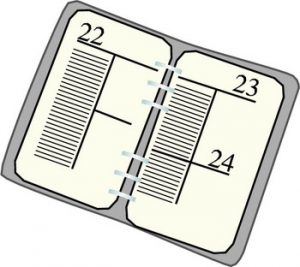
We won a top Lawyer and a top Witness award in TN
At the risk of writing a post that is only of potential interest to a small number of people, I wanted to discuss one of my favorite homeschool topics again – Mock Trial. I’m going to talk specifically about our upcoming experience here in Alabama’s Mock Trial competition, but Mock Trial is a program available for high school students across most of the United States. (We’ve actually competed in Texas and Tennessee, in addition to our more than twenty years here in Alabama.)
Six weeks ago I wrote a post about the enjoyment and value of Mock Trial, Making Meaningful Memories with Mock Trial. I spoke then about what Mock Trial has meant to my own family and to the dozens (maybe hundreds?) of students we’ve shared it with over the past two decades plus.
But, at this moment, as we work to put our teams together for what I expect to be my final stint at coaching Mock Trial I thought I would answer some of the questions about it that come up so often. (I have grown sons in the area who may take up the coaching responsibilities for our club in the nearish future, but after this year, it is time for me to retire.)
First, What is Mock Trial?
 In Alabama it is actually called Youth Judicial, but we’ve always called it Mock Trial and that’s what it’s generally called elsewhere, so we’ll stick to that. Mock Trial is a state competition for high school students (generally from public and private schools, with a few homeschool teams sometimes sprinkled in for good measure). In most states Mock Trial is sponsored by the state bar association, but in Alabama it’s sponsored by the YMCA. In states with bigger programs, there are competitions where teams must qualify to go to the state event, but in Alabama we just have the one, large state-wide competition that happens each November in Montgomery.
In Alabama it is actually called Youth Judicial, but we’ve always called it Mock Trial and that’s what it’s generally called elsewhere, so we’ll stick to that. Mock Trial is a state competition for high school students (generally from public and private schools, with a few homeschool teams sometimes sprinkled in for good measure). In most states Mock Trial is sponsored by the state bar association, but in Alabama it’s sponsored by the YMCA. In states with bigger programs, there are competitions where teams must qualify to go to the state event, but in Alabama we just have the one, large state-wide competition that happens each November in Montgomery.
What Happens at the Competition?

The coach in the middle (Me) flanked by two of my assistants.
We (my teams and related adults) drive together to Montgomery on Friday afternoon, so that we can get checked into our hotel rooms and prepare for the weekend’s events. More than 50 teams of six or more students compete that weekend, basically all day on Saturday and Sunday – generally in one of the courtrooms in the Federal Court House there in Montgomery. Teams usually have two or three trials on each of those days and then watch, as “jury members,” another two or three trials/day.
What Happens in a Trial?
 Each trial is conducted like a smaller, more controlled, version of a real life trial. The courtroom is set up like in real life – complete with a judge and a bailiff (in Alabama those are also students), a jury, a Prosecution team and a Defense team.
Each trial is conducted like a smaller, more controlled, version of a real life trial. The courtroom is set up like in real life – complete with a judge and a bailiff (in Alabama those are also students), a jury, a Prosecution team and a Defense team.
After the judges give their introductory remarks, lawyers from each side give an Opening Statement of three minutes or less (Prosecution and then Defense). After Opening Statements have been given the Prosecution team calls each of its three witnesses, one at a time of course, directing each witness and then allowing the witness to be crossed. Re-directs and re-crosses are allowed (and encouraged, at least by this coach!).
 Then it’s time for Defense to tell their side of the story – calling up their three witnesses to each be directed and crossed. During these directs and crosses lawyers are allowed to make objections if they so desire. (Hearsay and Relevance being two that we hear often down there.) Judges rule on each of the objections as they are made. (Often rather poorly in this coach’s perspective, but alas, they aren’t asking for my opinion on the matter!)
Then it’s time for Defense to tell their side of the story – calling up their three witnesses to each be directed and crossed. During these directs and crosses lawyers are allowed to make objections if they so desire. (Hearsay and Relevance being two that we hear often down there.) Judges rule on each of the objections as they are made. (Often rather poorly in this coach’s perspective, but alas, they aren’t asking for my opinion on the matter!)
Once all six witnesses (three from each side) have had their turns on the witness stand, we hear Closing Arguments (each lasting 5 minutes or less) – first from Prosecution, then Defense, and then hopefully one last time from Prosecution. (Defense doesn’t get a chance at a rebuttal, just Prosecution.)
 That’s the nuts and bolts of how the trials run. After trials I like to go over my notes with my students, generally encouraging them, sometimes reminding them to “Speak up!” and occasionally pointing out small things they can work on for the next time. We will have practiced many times before this, and this isn’t the time to make major changes to our process. They have it by then or they don’t. But sometimes there is a question about an unexpected objection, or a procedural difference that surprised us. I’m not a lawyer, so occasionally these questions stump me too, but generally my twenty plus years of Mock Trial experience will give me the information they are seeking.
That’s the nuts and bolts of how the trials run. After trials I like to go over my notes with my students, generally encouraging them, sometimes reminding them to “Speak up!” and occasionally pointing out small things they can work on for the next time. We will have practiced many times before this, and this isn’t the time to make major changes to our process. They have it by then or they don’t. But sometimes there is a question about an unexpected objection, or a procedural difference that surprised us. I’m not a lawyer, so occasionally these questions stump me too, but generally my twenty plus years of Mock Trial experience will give me the information they are seeking.
What is the Commitment before the Competition?
 We’ve met countless teams in Montgomery that have held tryouts for their teams and are going down with every intention of trying for the first place award. Many of them are serious to the point of obnoxiousness. We’ve never had anything against winning. (I lose track, but I think we’ve taken home nine first place awards in the twenty years we’ve done this, as well as numerous second and third places.) But I don’t go down there expecting or desiring that. I would rather take students who want to learn something, while having a reasonably good time at it. I’ve never gotten angry with a student who forgot the facts in their statement or who missed an objection. As long as my students are doing their best, and not cheating (something we see too much of in Montgomery), I am happy with them.
We’ve met countless teams in Montgomery that have held tryouts for their teams and are going down with every intention of trying for the first place award. Many of them are serious to the point of obnoxiousness. We’ve never had anything against winning. (I lose track, but I think we’ve taken home nine first place awards in the twenty years we’ve done this, as well as numerous second and third places.) But I don’t go down there expecting or desiring that. I would rather take students who want to learn something, while having a reasonably good time at it. I’ve never gotten angry with a student who forgot the facts in their statement or who missed an objection. As long as my students are doing their best, and not cheating (something we see too much of in Montgomery), I am happy with them.
Since we have two teams we practice together once a week (on Wednesday mornings), and then each team practices at least one other time each week. (This year my Prosecution team also meets on Monday afternoons, and my Defense team has practices on Tuesday and Thursday afternoons.) Most of my students make it to each of their team’s allotted practice times, but I do have one student who calls in from his home in Tennessee each time instead of making the lengthy drive, and we have another student who will miss most of the practices because of her school schedule. As long as students are willing to do the work at home and are putting in the necessary time, we can work with almost any homeschooled student who wants to participate. (To simplify things for me, the coach and the advisor, teams have always been made exclusively of students from homeschooled families. That doesn’t prevent all problems, sadly, but it at least cuts down on them.)
What Does It Require to Be a Witness?
![]() Witnesses have to spend much time on their own reading and getting very comfortable with their own witness statements. They are responsible for knowing all the little and not so little facts that their statement presents. (And a few of the witnesses, in this case our doctors, have to be familiar with one or more of the relevant exhibits.) As much as is possible, we actually have witnesses write out their own Direct questions and answers. That makes it easier on them, since witnesses must memorize their answers to the Direct questions (or at least the related facts, so they can easily answer those questions) and know their statements well enough to answer most any Cross questions that might get thrown at them. (Witnesses have no notes to help them when they take their seat in the Witness Stand.)
Witnesses have to spend much time on their own reading and getting very comfortable with their own witness statements. They are responsible for knowing all the little and not so little facts that their statement presents. (And a few of the witnesses, in this case our doctors, have to be familiar with one or more of the relevant exhibits.) As much as is possible, we actually have witnesses write out their own Direct questions and answers. That makes it easier on them, since witnesses must memorize their answers to the Direct questions (or at least the related facts, so they can easily answer those questions) and know their statements well enough to answer most any Cross questions that might get thrown at them. (Witnesses have no notes to help them when they take their seat in the Witness Stand.)
What is Required to be a Lawyer?
 Lawyers on the other hand, can use notes if they want to. (It may drop their score by a point, but that’s not a point worth stressing about.) Before the competition, each lawyer has to write a series of questions for whichever witness they are going to be crossing. They also need to have at least a passing knowledge of the most common objections, particularly the ones they are most likely to hear on their questions or that they will most likely want to make. (Something we try to work on each practice to make it easier. But again, not something I stress about.) Additionally, one lawyer from each team has to write the Opening Statement and another lawyer has to write the Closing Argument. Again, lawyers have the privilege of being able to memorize their questions and speeches, or to use notes, whichever they prefer.
Lawyers on the other hand, can use notes if they want to. (It may drop their score by a point, but that’s not a point worth stressing about.) Before the competition, each lawyer has to write a series of questions for whichever witness they are going to be crossing. They also need to have at least a passing knowledge of the most common objections, particularly the ones they are most likely to hear on their questions or that they will most likely want to make. (Something we try to work on each practice to make it easier. But again, not something I stress about.) Additionally, one lawyer from each team has to write the Opening Statement and another lawyer has to write the Closing Argument. Again, lawyers have the privilege of being able to memorize their questions and speeches, or to use notes, whichever they prefer.
How Much Does All This Cost?
 Sadly, this is the difficult part of the equation. Competing in Alabama’s Mock Trial Competition is not cheap! The YMCA charges each student $275 – and that only covers some of our costs (two of our nights in the hotel, a couple of our meals, and a t-shirt they may or may not want). On top of that, our additional expenses have risen to $125 per student – by the time we pay for our additional hotel costs, the extra meals, and our transportation to and from Montgomery. (And this is with the coaches and any other parents that want to attend paying their own expenses.)
Sadly, this is the difficult part of the equation. Competing in Alabama’s Mock Trial Competition is not cheap! The YMCA charges each student $275 – and that only covers some of our costs (two of our nights in the hotel, a couple of our meals, and a t-shirt they may or may not want). On top of that, our additional expenses have risen to $125 per student – by the time we pay for our additional hotel costs, the extra meals, and our transportation to and from Montgomery. (And this is with the coaches and any other parents that want to attend paying their own expenses.)
Is Mock Trial Worth all this Time and Money?
 Obviously, each family has to decide that for themselves, but more than twenty years ago I made the decision that yes, this was something we would invest the time and money into. (Fortunately it didn’t cost quite this much back then. Costs seem to rise annually.) And believe me, we have – I’ve taken as many as three of my own children to this at one time – having to pay for each of them and myself as the coach. And I’ve paid for the privilege of taking other people’s children for the last several years, since my last child graduated from the program. So, yes, I know the costs and have been willing to pay them.
Obviously, each family has to decide that for themselves, but more than twenty years ago I made the decision that yes, this was something we would invest the time and money into. (Fortunately it didn’t cost quite this much back then. Costs seem to rise annually.) And believe me, we have – I’ve taken as many as three of my own children to this at one time – having to pay for each of them and myself as the coach. And I’ve paid for the privilege of taking other people’s children for the last several years, since my last child graduated from the program. So, yes, I know the costs and have been willing to pay them.
From this program I have seen countless students polish their public speaking skills as well as their logic and thinking skills. Every student who has participated with us has learned something in the process and the vast majority have thoroughly enjoyed it. Full disclosure – I had one daughter who did it one time to help out in an usual situation. She did not love it, but that has seldom been the case. And I’m sure she learned much in the process, even if she won’t admit it!
If you are looking for a lively way to introduce your students to our judicial system while at the same time helping them to hone their speaking and thinking skills, I can’t think of a better way than Mock Trial.
Happy learning!
Cathy

Leave a Reply